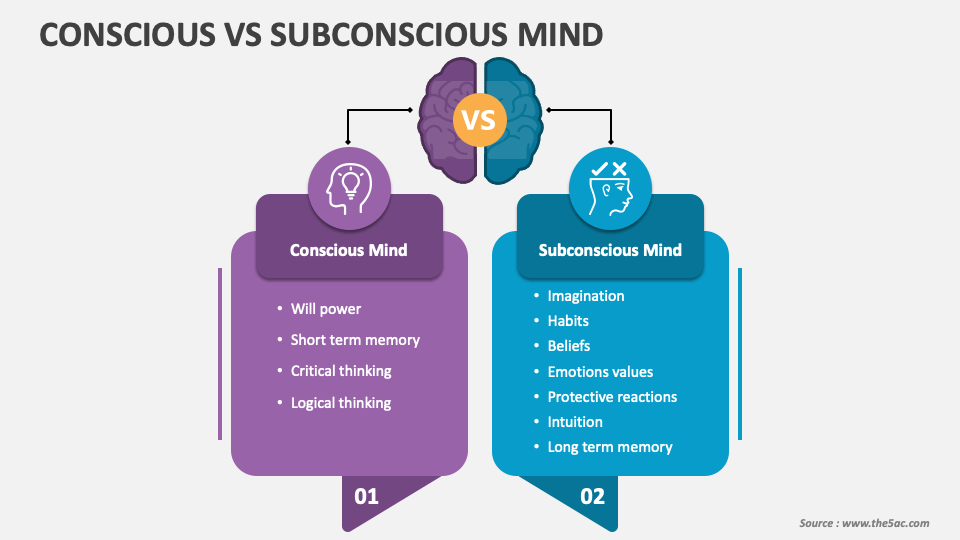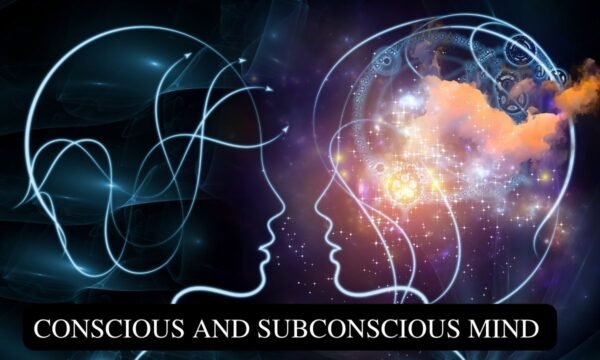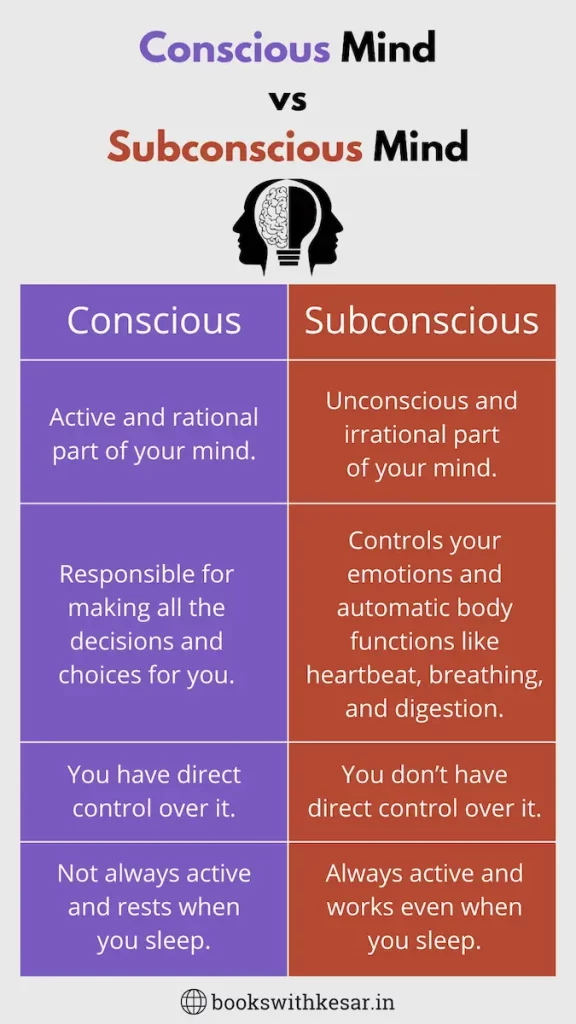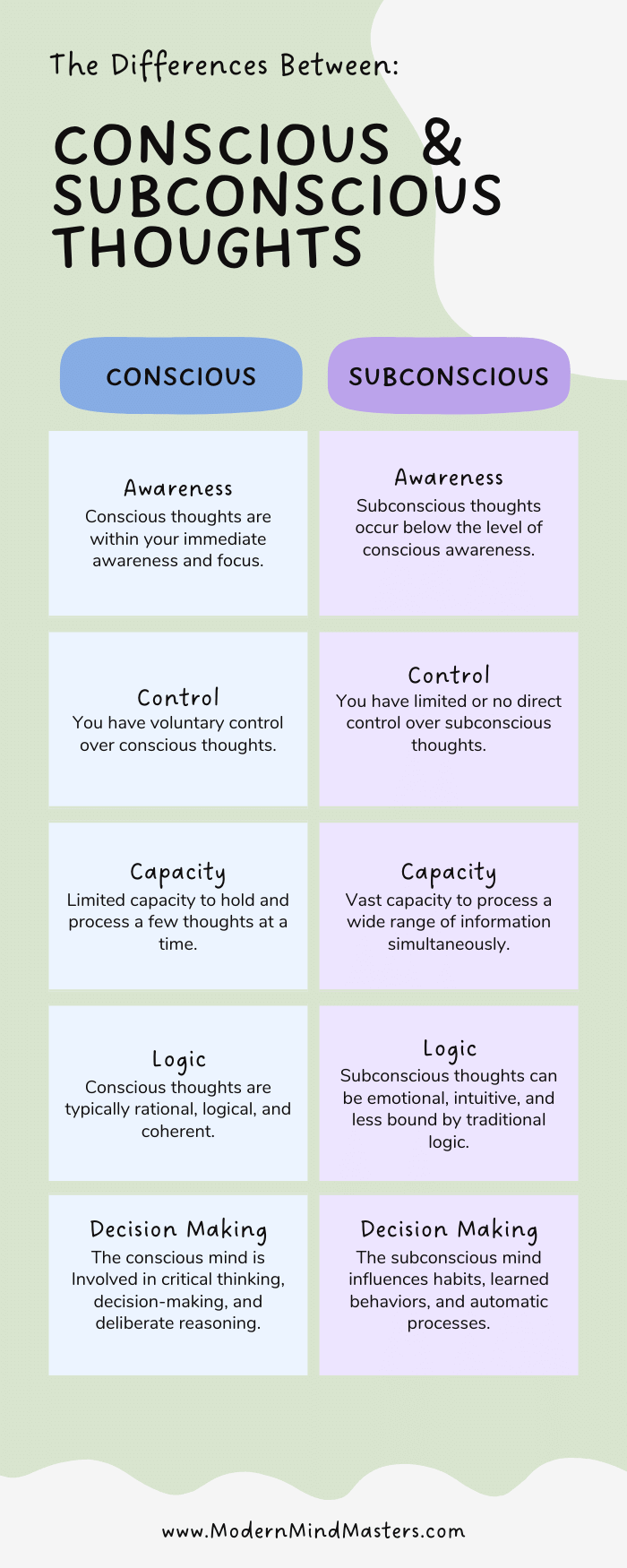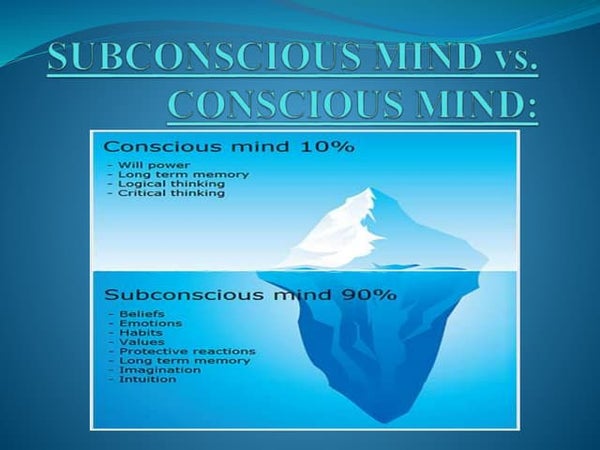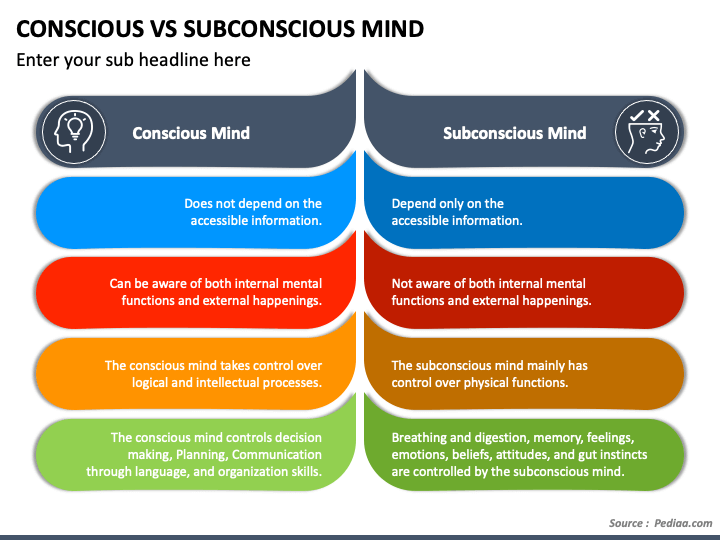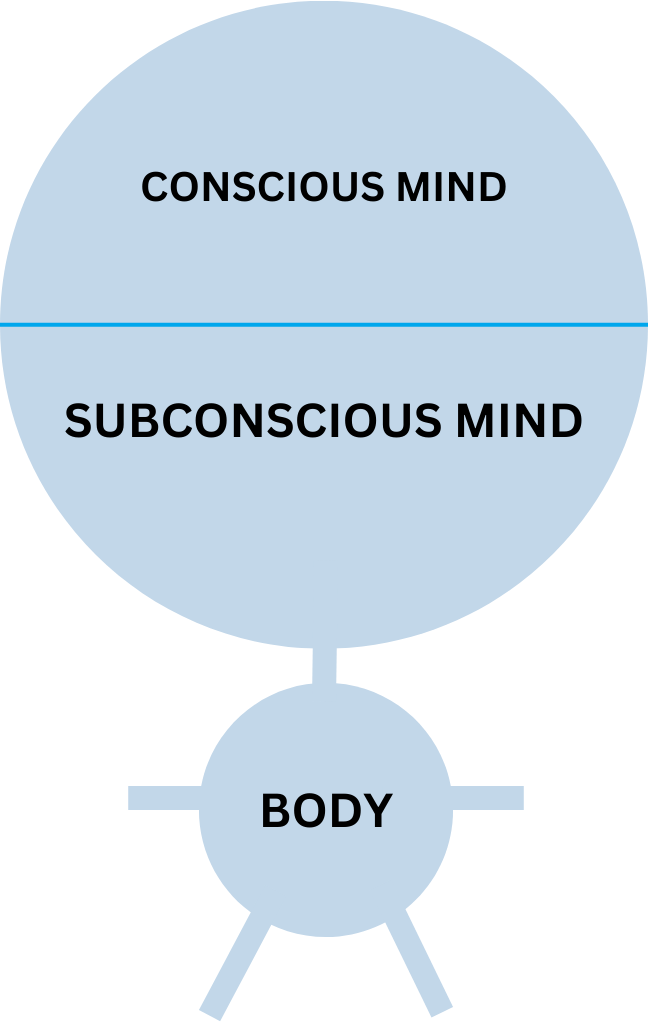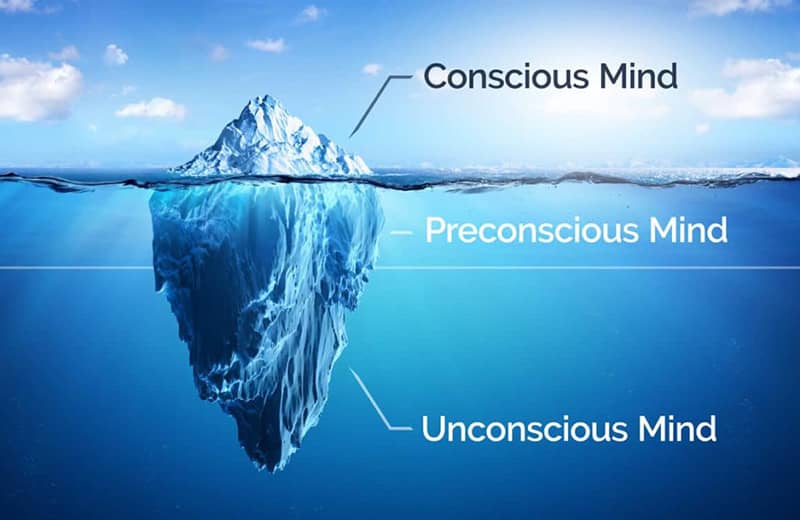What Is Difference Between Conscious And Subconscious Mind
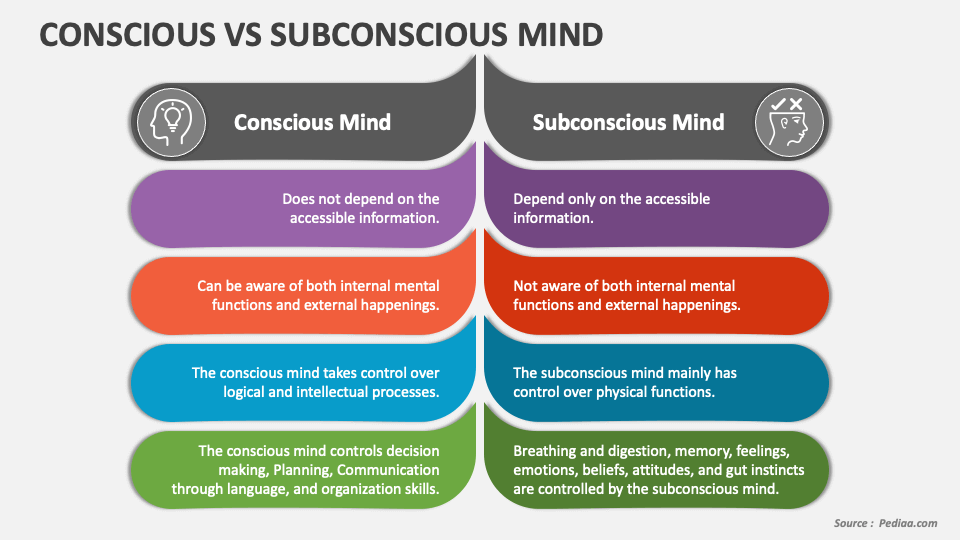
The human mind, often likened to an iceberg, holds vast unexplored depths. While we navigate our daily lives using our conscious awareness, a significant portion of our mental processes operates beneath the surface, in the realm of the subconscious. Understanding the distinction between these two fundamental aspects of the mind is crucial for comprehending human behavior and cognitive function.
This article aims to explore the differences between the conscious and subconscious mind, examining their respective roles, functions, and how they interact to shape our thoughts, feelings, and actions. Delving into this intricate relationship can provide valuable insights into various fields, including psychology, neuroscience, and personal development.
The Conscious Mind: The Tip of the Iceberg
The conscious mind represents the part of our mental landscape that we are directly aware of at any given moment. It's the active processing center where we engage in rational thought, decision-making, and problem-solving. Think of it as the operating system of a computer, actively running programs and responding to inputs.
Its capabilities are limited. The conscious mind can only hold a small amount of information at once, a phenomenon known as limited capacity. This constraint forces us to prioritize information and focus our attention selectively.
Key Functions of the Conscious Mind:
- Logical Reasoning: Analyzing information, drawing inferences, and making judgments based on evidence.
- Decision Making: Evaluating options and selecting a course of action.
- Short-Term Memory: Holding information temporarily for immediate use.
- Voluntary Actions: Initiating and controlling deliberate movements and behaviors.
The conscious mind is also responsible for our sense of self and our subjective experience of the world. It allows us to reflect on our thoughts and feelings, and to create a narrative of our lives.
The Subconscious Mind: The Hidden Depths
In contrast to the conscious mind, the subconscious mind operates below the level of awareness. It's a vast repository of memories, beliefs, habits, and emotions that influence our behavior without our conscious knowledge. Think of it as the computer's hard drive, storing vast amounts of data and running background processes.
The subconscious mind processes information at an incredible speed and capacity, far exceeding the limitations of the conscious mind. It is always active, even when we are asleep, working to maintain bodily functions and process sensory input.
Key Functions of the Subconscious Mind:
- Long-Term Memory: Storing past experiences, knowledge, and skills.
- Habits and Routines: Automating repetitive behaviors and actions.
- Emotions and Feelings: Generating emotional responses based on past experiences.
- Beliefs and Values: Shaping our perceptions and influencing our decisions.
The subconscious mind is also responsible for our intuition and gut feelings. These insights often arise from the subconscious processing of information, providing valuable guidance in decision-making. It is the seat of our creativity.
The Interplay Between Conscious and Subconscious
The conscious and subconscious minds are not separate entities, but rather interconnected and interdependent aspects of the same system. They constantly interact and influence each other, shaping our thoughts, feelings, and behaviors. The conscious mind can set goals and intentions, which are then programmed into the subconscious mind for execution.
The subconscious mind, in turn, provides the conscious mind with information and insights, influencing our perceptions and choices. For instance, a person may consciously choose to eat healthier, but their subconscious cravings for sugary foods may sabotage their efforts.
"The greatest revolution of our generation is the discovery that human beings, by changing the inner attitudes of their minds, can change the outer aspects of their lives." - William James, philosopher and psychologist.
Understanding the interplay between these two minds can empower individuals to make positive changes in their lives. By consciously influencing their subconscious beliefs and habits, they can overcome limiting patterns and achieve their goals.
The Impact and Significance
The study of the conscious and subconscious mind has significant implications for various fields. In psychology, it informs our understanding of mental disorders, therapeutic interventions, and the development of personality. In neuroscience, it sheds light on the neural mechanisms underlying consciousness, memory, and emotion.
Furthermore, understanding the subconscious mind is crucial for self-improvement and personal growth. By consciously reprogramming negative beliefs and habits, individuals can unlock their full potential and live more fulfilling lives. This understanding is increasingly used in fields like coaching, therapy, and even marketing, raising ethical concerns about manipulation.
Ultimately, unraveling the mysteries of the conscious and subconscious mind remains a central challenge for researchers and thinkers alike. As we continue to explore these hidden depths, we gain a deeper understanding of ourselves and the complex nature of the human experience. The exploration continues.

